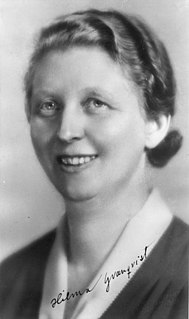
William is a popular given name of an old Germanic origin. It became very popular in the English language after the Norman conquest of England in 1066, and remained so throughout the Middle Ages and into the modern era. It is sometimes abbreviated "Wm." Shortened familiar versions in English include Will, Willy, Willie, Bill, and Billy. A common Irish form is Liam. Scottish diminutives include Wull, Willie or Wullie. Female forms are Willa, Willemina, Willamette, Wilma and Wilhelmina.

Runes are the letters in a set of related alphabets known as runic alphabets, which were used to write various Germanic languages before the adoption of the Latin alphabet and for specialised purposes thereafter. The Scandinavian variants are also known as futhark or fuþark ; the Anglo-Saxon variant is futhorc or fuþorc.
The Younger Futhark, also called Scandinavian runes, is a runic alphabet and a reduced form of the Elder Futhark, with only 16 characters, in use from about the 9th century, after a "transitional period" during the 7th and 8th centuries. The reduction, somewhat paradoxically, happened at the same time as phonetic changes that led to a greater number of different phonemes in the spoken language, when Proto-Norse evolved into Old Norse. Thus, the language included distinct sounds and minimal pairs that were written the same.
Dąbrowski or Dabrowski is the 11th most common surname in Poland ; this is down from an apparent rank of 4th in 1990. Dąbrowski is a habitational name derived from the placename 'Dąbrowa' or 'Dąbrówka', which is used for several specific places in Poland or generically as "oak grove", the English meaning for these Polish words. Variants of the surname include Dombrowski, Dobrowski, and Dobrosky. Dobrowski also has an independent origin as a habitational name derived from the placename 'Dobrów'. The text-figure below summarizes the relationships among these various words. In other Slavic countries, the same surname takes the form Dubrovsky, as the Polish "ą" corresponds to "u" in most other Slavic languages.
Isabel is a Romance-language feminine given name. It originates as the medieval Occitan form of Elisabeth , Arising in the 12th century, it became popular in England in the 13th century following the marriage of Isabella of Angoulême to the king of England. The modern French form is Isabelle, the Italian form is Isabella.
Ragnar is a masculine Germanic given name, composed of the Old Norse elements ragin- "counsel" and hari- "army".
Aurora is a feminine given name, originating from the name of the ancient Roman goddess of dawn Aurora.

Hilma af Klint was a Swedish artist and mystic whose paintings were among the first Western abstract art. A considerable body of her abstract work predates the first purely abstract compositions by Kandinsky. She belonged to a group called "The Five", a circle of women who shared her belief in the importance of trying to make contact with the so-called "High Masters"—often by way of séances. Her paintings, which sometimes resemble diagrams, were a visual representation of complex spiritual ideas.
Rambo is a surname with Norwegian (Vestfold) and Swedish origins. It possibly originated with ramn + bo, meaning "raven's nest". It has variants in French and German (Rambow). It is now best known from the Rambo (franchise), whose protagonist was known simply as "Rambo" in the novel that inspired it First Blood (1972), then as John Rambo in the film series.
Ralph is an English, Irish, Scottish, Dutch, Scandinavian, and German masculine given name, derived from the Old Norse Raðulfr through Old English Rædwulf and the longer form Radulf. It is also a surname and often a nickname of Rudolph.
Britta is a female given name that is a variant of the Swedish name Birgitta, which is a form of the Irish Gaelic name Brighid. The name Britta became popular in Scandinavia and Germany because of St. Bridget of Sweden.

Arnold is a masculine German, Dutch, and English given name. It is composed of the Germanic elements arn "eagle" and wald "rule, power". The name is first recorded in Francia from about the 7th century, at first often conflated with the name Arnulf, as in the name of bishop Arnulf of Metz, also recorded as Arnoald. Arnulf appears to be the older name, and German (Frankish) Arnold may have originally arisen in c. the 7th century as a corruption of Arnulf, possibly by conflation of similar names such as Hari-wald, Arn-hald, etc.

Wilhelmina is a feminine given name, the Dutch and German form of Wilhelm or William, which is derived from the Germanic wil, meaning "will, desire" and helm, meaning "helmet, protection". Wilhelmina was ranked in the top 1000 most popular names for girls in the United States between 1900 and 1940 but is rarely used today. In many European countries, this name is once again very popular. Nicknames for Wilhelmina include, but are not restricted to, Minna, Mina, and Willie.
Benjamin is a popular given name for males, derived from Hebrew בִּנְיָמִין, Binyāmīn, translating as "Son of my right [hand]", though in the Samaritan Pentateuch, the name appears as "Binyaamem" "Son of my days".
Constantina Carolina Amalia "Amelie" von Strussenfelt (1803–1847), was a Swedish writer and poet.

Events from the year 1870 in Sweden

Events from the year 1855 in Sweden
Antonine is a Swedish, Danish, and Norwegian feminine given name that is a form of Antonina and a diminutive form of Antonia that is used in Norway, Denmark, Sweden and Greenland. It is also a masculine name. Notable people with this name include the following individuals:










